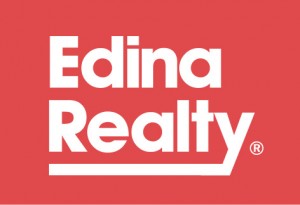 Late last week, I published a post on the VHT Blog entitled, “Separating Facts from Fluff: What Big Aggregators Still Aren’t Telling Agents/Brokers.” I also wrote a similar post on REALTOR.com’s blog in response to the company’s statements after Edina Realty announced it would stop sending listings to the aggregator site. I have to admit I was surprised when REALTOR.com actually posted my comments a few hours later. After all, I was taking the company to task for treating brokers unfairly on their site, and for hiding their questionable practices from real estate professionals. Realtor.com Editor in Chief, Scott Garner, provided a response to my post, restating the company’s position but politely thanking me for joining the conversation. Here is his comment:
Late last week, I published a post on the VHT Blog entitled, “Separating Facts from Fluff: What Big Aggregators Still Aren’t Telling Agents/Brokers.” I also wrote a similar post on REALTOR.com’s blog in response to the company’s statements after Edina Realty announced it would stop sending listings to the aggregator site. I have to admit I was surprised when REALTOR.com actually posted my comments a few hours later. After all, I was taking the company to task for treating brokers unfairly on their site, and for hiding their questionable practices from real estate professionals. Realtor.com Editor in Chief, Scott Garner, provided a response to my post, restating the company’s position but politely thanking me for joining the conversation. Here is his comment:
Thanks for your comment. We believe that open discussion and input on issues like this are vital. I’d like to just highlight a point that we feel speaks to the main gist of your concerns. Realtor.com offers brokers a choice as to how they want their listings displayed. If a broker with a basic listing on the site doesn’t want to participate in the Co-Brokerage product, they can quickly and easily opt out. Realtor.com doesn’t display competing broker branding or contact details on another broker’s listing. At Move, we understand that some folks are going to disagree with us, and we respect that. But we also think that the investments we’ve made in developing ListHub into an even more user friendly experience for brokers, the security practices we’ve put into place on Realtor.com that help ensure your valuable listing content isn’t scraped, and the way our day-to-day Realtor.com operations respect brokers rights demonstrate that we are committed to serving our customers in a responsive and industry-friendly way. Thanks again for joining in the conversation. We appreciate your views.Well, apparently the higher-ups at REALTOR.com don’t share Garner’s open-minded attitudes toward dissenting viewpoints. About an hour later, my post was suddenly removed from the site. POOF!! Like it was never there. No wonder brokers are turning their backs on big aggregators. Edina is one of many top realtors that are speaking out, asking questions and taking a stand against third parties for taking their listings without paying them and then demanding money from them for leads and biasing search results. Edina is raising legitimate issues that are being discussed by concerned brokers just about everywhere these days. Does REALTOR.com actually think it can hide the controversy from public view as it tries to stuff the genie back into the bottle? At VHT, we’re unapologetically on the side of brokers, and we promise to fairly and openly air all of the digital marketing and technology issues impacting real estate professionals today. It’s a pivotal moment for the industry, and open discussion is critical. I hope you’ll stayed tuned to the VHT Blog for all the facts, information and insight you won't get from third parties like REALTOR.com that would prefer that you not read the fine print while they keep taking money from your pockets.
It hasn’t been a good week for third party aggregators, who experienced more bad news when they got dumped by both Prudential Kansas City and Edina Realty.  Prudential stated that aggregators “provide a poor experience for both buyers and sellers,” while Edina cited “a nationwide outcry against non-broker controlled websites over data inaccuracy and consumer privacy.”
Must have caused quite a stir in the war rooms of the big aggregators. They reacted by turning up the dial on their expanding PR campaign trying to mollify the brokers they’ve been alienating with their pay-for-play programs. Trulia said it named a Chicago brokerage manager, Matt Dollinger, its new “Head of “Industry Relations.” And REALTOR.com issued a feeble response to Edina’s complaints, insisting that it’s “been a good partner and (has) added value that will be missed” by the brokerage.
What REALTOR.com didn’t say in its statement is that there remains some very troubling practices that brokers should know about:
Prudential stated that aggregators “provide a poor experience for both buyers and sellers,” while Edina cited “a nationwide outcry against non-broker controlled websites over data inaccuracy and consumer privacy.”
Must have caused quite a stir in the war rooms of the big aggregators. They reacted by turning up the dial on their expanding PR campaign trying to mollify the brokers they’ve been alienating with their pay-for-play programs. Trulia said it named a Chicago brokerage manager, Matt Dollinger, its new “Head of “Industry Relations.” And REALTOR.com issued a feeble response to Edina’s complaints, insisting that it’s “been a good partner and (has) added value that will be missed” by the brokerage.
What REALTOR.com didn’t say in its statement is that there remains some very troubling practices that brokers should know about:
 Prudential stated that aggregators “provide a poor experience for both buyers and sellers,” while Edina cited “a nationwide outcry against non-broker controlled websites over data inaccuracy and consumer privacy.”
Must have caused quite a stir in the war rooms of the big aggregators. They reacted by turning up the dial on their expanding PR campaign trying to mollify the brokers they’ve been alienating with their pay-for-play programs. Trulia said it named a Chicago brokerage manager, Matt Dollinger, its new “Head of “Industry Relations.” And REALTOR.com issued a feeble response to Edina’s complaints, insisting that it’s “been a good partner and (has) added value that will be missed” by the brokerage.
What REALTOR.com didn’t say in its statement is that there remains some very troubling practices that brokers should know about:
Prudential stated that aggregators “provide a poor experience for both buyers and sellers,” while Edina cited “a nationwide outcry against non-broker controlled websites over data inaccuracy and consumer privacy.”
Must have caused quite a stir in the war rooms of the big aggregators. They reacted by turning up the dial on their expanding PR campaign trying to mollify the brokers they’ve been alienating with their pay-for-play programs. Trulia said it named a Chicago brokerage manager, Matt Dollinger, its new “Head of “Industry Relations.” And REALTOR.com issued a feeble response to Edina’s complaints, insisting that it’s “been a good partner and (has) added value that will be missed” by the brokerage.
What REALTOR.com didn’t say in its statement is that there remains some very troubling practices that brokers should know about:
- REALTOR.com still adds no-follow tags and internal redirects to every link back to a broker’s website. The result of this practice is to confuse the search engines as to who is actually the authoritative source of the data. REALTOR.com is counting on the fact it can get ranked higher in Google search results (where the majority of buyers start their real estate researches), grabbing a buyer before the broker has a chance to, then selling that buyer back to the broker or agent at a very high cost.
- REALTOR.com sends leads to competitive agents/brokers. Unless you are willing to pay REALTOR.com an exorbitant fee, any consumer interest in a broker’s listing will go to a broker/agent that paid the most, not the broker/agent that has the listing. While Realtor.com doesn’t actually name the broker/agent they send it to (as do other vampire aggregators like Zillow and Trulia) it’s still the same anti-consumer, anti-seller practice. This hurts a seller because it drives any interest in their property not to the agent/broker with the most knowledge about the property (which is what buyers/sellers want), but to an agent/broker that may have never even seen the property before. Or worse yet for the seller, the agent/broker who gets the lead may have a competitive property for sale down the street which they’ll steer the buyer to instead. None of this behavior is ever disclosed to the consumer, or seller.
- REALTOR.com adds competitive product advertising to a broker’s listings. If a brokerage also happens to have a title, mortgage, or insurance company, they must pay REALTOR.com an exorbitant fee just to advertise them on their own listings. All of this increases the cost of doing business for a broker.
- You effectively give up your copyright on anything you send to REALTOR.com. Like other aggregators, the website’s operator, Move Inc., requires you to “grant to Move an irrevocable, perpetual, non-exclusive, fully paid, worldwide license to use, copy, perform, display, and distribute the Content and to prepare derivative works of, or incorporate into other works, the Content, and to grant and authorize sublicenses (through multiple tiers) of the foregoing. Furthermore, by posting Content to any public area of the Move Network, you grant Move all rights necessary to prohibit any subsequent aggregation, display, copying, duplication, reproduction, or exploitation of the Content on the Move Network by any party for any purpose.”
- The legal gobbledegook means that REALTOR.com can do whatever it wants with the content, including re-licensing and selling it to whomever it pleases. Once you agree to send your listings to REALTOR.com, you effectively lose all control of the data, including the inside photographs of your client’s home! This is totally unnecessary to provide the service they claim to be providing.
- REALTOR.com pricing has gone up over 50 percent while its market share has plummeted. The fact is that REALTOR.com is losing market share to Trulia and Zillow, yet it continues to increase its pricing almost every year! For those brokers that do decide on an aggregator strategy, REALTOR.com is quickly becoming a very tough sell.
Last month Google implemented another major update, this time known as ‘Penguin’. While this update is primarily targeted towards outright web spam and questionable/unethical SEO tactics, known as black hat SEO, it still has many site owners up in arms trying to determine if their sites were impacted.
This update has raised a lot of questions. Is Penguin hurting small businesses? Do proper SEO tactics risk becoming spam? What actually qualifies as spam in the eyes of Google? Though there are a lot of questions, one thing is for sure,  there has been some serious backlash.
Penguin (and its predecessor Panda) attempts to penalize efforts to manipulate its algorithm and ensure users are getting the best results when they search with Google. So, websites using keywords in an artificial way are being punished, by, ultimately, getting less traffic.
This all sounds well and good, but does Penguin only affect sites relying on black hat tactics, or will using certain keywords on your site get you punished? Furthermore, Google operated Gmail uses automated spam detection systems to analyze patterns and predict what types of messages are fraudulent or potentially harmful. How does Google determine what is, in their words, "usually associated with spam?" We know the obvious ones (adult, get rich quick, etc.) but what if your legitimate website in a legitimate industry was suddenly viewed as spam?
SEO wiz and SEOMoz CEO Rand Fishkin gave his thoughts in a recent video discussing Google’s execution of Penquin. Fishkin’s takeaways include that there appears to be disproportionately high levels of sites in the marketing/services field affected by the update.
Fishkin recently told WebProNews what he means by this is, “a lot of people who operate in these marketing services fields are also likely to have a lot of correlation with the people who are potentially getting the kinds of link spam to their web pages that Google hit in this update. The other things is, this could merely a leading indicator…we’re obviously in the marketing and SEO field, and so it could be that we’re just getting a disproportionate number of those types of folks talking about it in Q&A, emailing, tweeting at us…all those kinds of things.”
You can see more of what he has to say on the SEOMoz’s Google+ channel.
Bottom line, whi
there has been some serious backlash.
Penguin (and its predecessor Panda) attempts to penalize efforts to manipulate its algorithm and ensure users are getting the best results when they search with Google. So, websites using keywords in an artificial way are being punished, by, ultimately, getting less traffic.
This all sounds well and good, but does Penguin only affect sites relying on black hat tactics, or will using certain keywords on your site get you punished? Furthermore, Google operated Gmail uses automated spam detection systems to analyze patterns and predict what types of messages are fraudulent or potentially harmful. How does Google determine what is, in their words, "usually associated with spam?" We know the obvious ones (adult, get rich quick, etc.) but what if your legitimate website in a legitimate industry was suddenly viewed as spam?
SEO wiz and SEOMoz CEO Rand Fishkin gave his thoughts in a recent video discussing Google’s execution of Penquin. Fishkin’s takeaways include that there appears to be disproportionately high levels of sites in the marketing/services field affected by the update.
Fishkin recently told WebProNews what he means by this is, “a lot of people who operate in these marketing services fields are also likely to have a lot of correlation with the people who are potentially getting the kinds of link spam to their web pages that Google hit in this update. The other things is, this could merely a leading indicator…we’re obviously in the marketing and SEO field, and so it could be that we’re just getting a disproportionate number of those types of folks talking about it in Q&A, emailing, tweeting at us…all those kinds of things.”
You can see more of what he has to say on the SEOMoz’s Google+ channel.
Bottom line, whi ch Marc Ensign said best on his blog, is that Google’s number one job is to return results that are relevant with the term being searched. Period. Any update is going to have glitches to work out, but it takes time and adaptability on the part of the site owner. The purpose of the Penguin update was not to punish sites that use SEO. Search engine optimization is a great strategy for driving traffic to your website and connecting with new customers. Penguin by no means means you should stop what you are doing, but it may require changing your strategy a bit.
Ensign offers advice that site owners can start doing right now:
ch Marc Ensign said best on his blog, is that Google’s number one job is to return results that are relevant with the term being searched. Period. Any update is going to have glitches to work out, but it takes time and adaptability on the part of the site owner. The purpose of the Penguin update was not to punish sites that use SEO. Search engine optimization is a great strategy for driving traffic to your website and connecting with new customers. Penguin by no means means you should stop what you are doing, but it may require changing your strategy a bit.
Ensign offers advice that site owners can start doing right now:
 there has been some serious backlash.
Penguin (and its predecessor Panda) attempts to penalize efforts to manipulate its algorithm and ensure users are getting the best results when they search with Google. So, websites using keywords in an artificial way are being punished, by, ultimately, getting less traffic.
This all sounds well and good, but does Penguin only affect sites relying on black hat tactics, or will using certain keywords on your site get you punished? Furthermore, Google operated Gmail uses automated spam detection systems to analyze patterns and predict what types of messages are fraudulent or potentially harmful. How does Google determine what is, in their words, "usually associated with spam?" We know the obvious ones (adult, get rich quick, etc.) but what if your legitimate website in a legitimate industry was suddenly viewed as spam?
SEO wiz and SEOMoz CEO Rand Fishkin gave his thoughts in a recent video discussing Google’s execution of Penquin. Fishkin’s takeaways include that there appears to be disproportionately high levels of sites in the marketing/services field affected by the update.
Fishkin recently told WebProNews what he means by this is, “a lot of people who operate in these marketing services fields are also likely to have a lot of correlation with the people who are potentially getting the kinds of link spam to their web pages that Google hit in this update. The other things is, this could merely a leading indicator…we’re obviously in the marketing and SEO field, and so it could be that we’re just getting a disproportionate number of those types of folks talking about it in Q&A, emailing, tweeting at us…all those kinds of things.”
You can see more of what he has to say on the SEOMoz’s Google+ channel.
Bottom line, whi
there has been some serious backlash.
Penguin (and its predecessor Panda) attempts to penalize efforts to manipulate its algorithm and ensure users are getting the best results when they search with Google. So, websites using keywords in an artificial way are being punished, by, ultimately, getting less traffic.
This all sounds well and good, but does Penguin only affect sites relying on black hat tactics, or will using certain keywords on your site get you punished? Furthermore, Google operated Gmail uses automated spam detection systems to analyze patterns and predict what types of messages are fraudulent or potentially harmful. How does Google determine what is, in their words, "usually associated with spam?" We know the obvious ones (adult, get rich quick, etc.) but what if your legitimate website in a legitimate industry was suddenly viewed as spam?
SEO wiz and SEOMoz CEO Rand Fishkin gave his thoughts in a recent video discussing Google’s execution of Penquin. Fishkin’s takeaways include that there appears to be disproportionately high levels of sites in the marketing/services field affected by the update.
Fishkin recently told WebProNews what he means by this is, “a lot of people who operate in these marketing services fields are also likely to have a lot of correlation with the people who are potentially getting the kinds of link spam to their web pages that Google hit in this update. The other things is, this could merely a leading indicator…we’re obviously in the marketing and SEO field, and so it could be that we’re just getting a disproportionate number of those types of folks talking about it in Q&A, emailing, tweeting at us…all those kinds of things.”
You can see more of what he has to say on the SEOMoz’s Google+ channel.
Bottom line, whi ch Marc Ensign said best on his blog, is that Google’s number one job is to return results that are relevant with the term being searched. Period. Any update is going to have glitches to work out, but it takes time and adaptability on the part of the site owner. The purpose of the Penguin update was not to punish sites that use SEO. Search engine optimization is a great strategy for driving traffic to your website and connecting with new customers. Penguin by no means means you should stop what you are doing, but it may require changing your strategy a bit.
Ensign offers advice that site owners can start doing right now:
ch Marc Ensign said best on his blog, is that Google’s number one job is to return results that are relevant with the term being searched. Period. Any update is going to have glitches to work out, but it takes time and adaptability on the part of the site owner. The purpose of the Penguin update was not to punish sites that use SEO. Search engine optimization is a great strategy for driving traffic to your website and connecting with new customers. Penguin by no means means you should stop what you are doing, but it may require changing your strategy a bit.
Ensign offers advice that site owners can start doing right now:
- Create a blog and consistently build up your site into a wealth of valuable content.
- Work with a PR firm or read a book and start writing legitimate press releases on a regular basis and post them on your site.
- Visit blogs within your industry and leave valuable feedback in their comments section.
- Link out to other valuable resources within your industry that would benefit your visitors.
- Share everything you are creating on 2 or 3 of your favorite social media sites of choice.
- Position yourself as an expert.
 Prudential Kansas City Real Estate became the latest top brokerage to stop sending listings to Zillow and Trulia, according to David Cooper, President and CEO.
Headquartered in Overland Park, KS, PKC has seven branch offices with 450 full-time sales associates, and is a VHT customer. In a new video to PruKC agents and a separate one to PruKC clients, Cooper explained why he believes the aggregators “provide a poor experience for both buyers and sellers.”
“As a company, Prudential Kansas City Realty has devoted significant time and resources to ensure that our listings have the kind of quality exposure necessary to compete for today’s increasingly sophisticated buyers,” Cooper said this week in the video to agents. “Recently we’ve noticed an alarming trend. Internet savvy, third party aggregators like Trulia and Zillow are now successfully using our listings data to dominate Google rankings as well as determine which listings and which agents get the most visibility. Imagine if we allowed Zillow or Trulia to have a sign rider on all of your yard signs with their contact information. The very idea is unthinkable and you would be outraged, right? Well, that’s essentially what we’re allowing them to do on all of our listings all over the web.”
“At Prudential, Kansas City Realty, we continually evaluate the approach we take to market our sellers’ homes and we insist that any marketing tool we use produce strong results,” Cooper said. “After years of monitoring the effectiveness of third- party listing syndication websites, we found that only 2 percent of our leads are generated by third-party efforts and we keep arriving at the same conclusion. Neither the home seller nor the potential home buyer is well served by these third party sites. Bottom line, it’s time we take back control of our own listings and make sure that Google knows that Prudential Kansas City Realty is the true authoritative source on Kansas City listings.”
Thoughts?
Prudential Kansas City Real Estate became the latest top brokerage to stop sending listings to Zillow and Trulia, according to David Cooper, President and CEO.
Headquartered in Overland Park, KS, PKC has seven branch offices with 450 full-time sales associates, and is a VHT customer. In a new video to PruKC agents and a separate one to PruKC clients, Cooper explained why he believes the aggregators “provide a poor experience for both buyers and sellers.”
“As a company, Prudential Kansas City Realty has devoted significant time and resources to ensure that our listings have the kind of quality exposure necessary to compete for today’s increasingly sophisticated buyers,” Cooper said this week in the video to agents. “Recently we’ve noticed an alarming trend. Internet savvy, third party aggregators like Trulia and Zillow are now successfully using our listings data to dominate Google rankings as well as determine which listings and which agents get the most visibility. Imagine if we allowed Zillow or Trulia to have a sign rider on all of your yard signs with their contact information. The very idea is unthinkable and you would be outraged, right? Well, that’s essentially what we’re allowing them to do on all of our listings all over the web.”
“At Prudential, Kansas City Realty, we continually evaluate the approach we take to market our sellers’ homes and we insist that any marketing tool we use produce strong results,” Cooper said. “After years of monitoring the effectiveness of third- party listing syndication websites, we found that only 2 percent of our leads are generated by third-party efforts and we keep arriving at the same conclusion. Neither the home seller nor the potential home buyer is well served by these third party sites. Bottom line, it’s time we take back control of our own listings and make sure that Google knows that Prudential Kansas City Realty is the true authoritative source on Kansas City listings.”
Thoughts?  Edina, one of the nation’s largest real estate companies with offices throughout Minnesota and western Wisconsin, has had enough. Again. Edina, who previously severed its relationship with third-party aggregator Trulia.com, announced today it will no longer be sending any property listings to Realtor.com. This decision, Edina says, was based on data inaccuracy by aggregators and the fact that sales leads often go to the highest paying agent, rather than the agent with the actual listing.
As VHT noted in a recent white paper, brokers and agents may think they’re reaching more potential buyers by sharing their listings with aggregators, but in fact the opposite is true. Brokerages put themselves at a disadvantage because they’re missing out on millions of search engine visitors who otherwise would have come directly to their own sites.
Customers are also being affected by the actions of real estate aggregators. Bob Peltier, president and CEO of Edina Realty Home Services explains, “Consumers are getting the short end of the stick on these sites because there’s no guarantee that the property data is accurate, and it’s difficult to tell who the listing broker is.”
Edina has found a better marketing formula. They’ve discovered that an effective website strategy can provide more online leads at a lower overall cost. Brokerages also have the in-depth knowledge of each listing and the personal touch to help customers through the home-buying process. It’s a win-win.
Read Edina's full press release here.
Edina, one of the nation’s largest real estate companies with offices throughout Minnesota and western Wisconsin, has had enough. Again. Edina, who previously severed its relationship with third-party aggregator Trulia.com, announced today it will no longer be sending any property listings to Realtor.com. This decision, Edina says, was based on data inaccuracy by aggregators and the fact that sales leads often go to the highest paying agent, rather than the agent with the actual listing.
As VHT noted in a recent white paper, brokers and agents may think they’re reaching more potential buyers by sharing their listings with aggregators, but in fact the opposite is true. Brokerages put themselves at a disadvantage because they’re missing out on millions of search engine visitors who otherwise would have come directly to their own sites.
Customers are also being affected by the actions of real estate aggregators. Bob Peltier, president and CEO of Edina Realty Home Services explains, “Consumers are getting the short end of the stick on these sites because there’s no guarantee that the property data is accurate, and it’s difficult to tell who the listing broker is.”
Edina has found a better marketing formula. They’ve discovered that an effective website strategy can provide more online leads at a lower overall cost. Brokerages also have the in-depth knowledge of each listing and the personal touch to help customers through the home-buying process. It’s a win-win.
Read Edina's full press release here.
Just as brokers are wising up to the alarming tactics of third-party sites like Zillow and Trulia, Market Leader pulls a strategic about-face and joins the ranks of listing aggregators that are bypassing brokerages to extort money directly from their agents. Now that it owns realestate.com, which it purchased in 2011 for $8.25 million, Market Leader is apparently trying to pay for the acquisition with an aggressive email marketing campaign in which it’s selling leads to agents that pony up ad dollars to become “city experts” on the site.
That’s right. Market Leader is the latest third-party player to take agents’ listings and use them to make money by selling access to competing agents. The company’s breathless marketing emails this week stated that the company “has sold close to 2,000 cities” and it’s planning to rev up the sales campaign “soon” with a mass-media ad buy.
It’s an especially shocking turn of events given the company’s recent PR fluff about its strategic partnerships with brokerages and its commitment to helping brokers grow their businesses. I thought selling zip-codes and leads was the company’s old business model - but apparently they haven’t changed a thing.
What kind of partner gets in between brokers’ relationship with their agents? What’s helpful about making agents pay to get leads on their own listings? What’s fair about charging agents protection money to keep other agents from getting leads on their listings?
Nothing, but that isn't stopping Market Leader.
Now that it owns realestate.com, which it purchased in 2011 for $8.25 million, Market Leader is apparently trying to pay for the acquisition with an aggressive email marketing campaign in which it’s selling leads to agents that pony up ad dollars to become “city experts” on the site.
That’s right. Market Leader is the latest third-party player to take agents’ listings and use them to make money by selling access to competing agents. The company’s breathless marketing emails this week stated that the company “has sold close to 2,000 cities” and it’s planning to rev up the sales campaign “soon” with a mass-media ad buy.
It’s an especially shocking turn of events given the company’s recent PR fluff about its strategic partnerships with brokerages and its commitment to helping brokers grow their businesses. I thought selling zip-codes and leads was the company’s old business model - but apparently they haven’t changed a thing.
What kind of partner gets in between brokers’ relationship with their agents? What’s helpful about making agents pay to get leads on their own listings? What’s fair about charging agents protection money to keep other agents from getting leads on their listings?
Nothing, but that isn't stopping Market Leader.
 Now that it owns realestate.com, which it purchased in 2011 for $8.25 million, Market Leader is apparently trying to pay for the acquisition with an aggressive email marketing campaign in which it’s selling leads to agents that pony up ad dollars to become “city experts” on the site.
That’s right. Market Leader is the latest third-party player to take agents’ listings and use them to make money by selling access to competing agents. The company’s breathless marketing emails this week stated that the company “has sold close to 2,000 cities” and it’s planning to rev up the sales campaign “soon” with a mass-media ad buy.
It’s an especially shocking turn of events given the company’s recent PR fluff about its strategic partnerships with brokerages and its commitment to helping brokers grow their businesses. I thought selling zip-codes and leads was the company’s old business model - but apparently they haven’t changed a thing.
What kind of partner gets in between brokers’ relationship with their agents? What’s helpful about making agents pay to get leads on their own listings? What’s fair about charging agents protection money to keep other agents from getting leads on their listings?
Nothing, but that isn't stopping Market Leader.
Now that it owns realestate.com, which it purchased in 2011 for $8.25 million, Market Leader is apparently trying to pay for the acquisition with an aggressive email marketing campaign in which it’s selling leads to agents that pony up ad dollars to become “city experts” on the site.
That’s right. Market Leader is the latest third-party player to take agents’ listings and use them to make money by selling access to competing agents. The company’s breathless marketing emails this week stated that the company “has sold close to 2,000 cities” and it’s planning to rev up the sales campaign “soon” with a mass-media ad buy.
It’s an especially shocking turn of events given the company’s recent PR fluff about its strategic partnerships with brokerages and its commitment to helping brokers grow their businesses. I thought selling zip-codes and leads was the company’s old business model - but apparently they haven’t changed a thing.
What kind of partner gets in between brokers’ relationship with their agents? What’s helpful about making agents pay to get leads on their own listings? What’s fair about charging agents protection money to keep other agents from getting leads on their listings?
Nothing, but that isn't stopping Market Leader.
Alex Zoghlin, CEO of VHT Inc. told AGBeat, “I’m not surprised there’s an escalating firestorm over third-party listing aggregators. They’re using brokers’ most valuable assets to make money, build their businesses and divert customers away. Contrary to what many brokers believe, their competition isn’t the brokerage down the street – it’s the fast-growing, third party ecosystem of listing aggregators, online publishers, virtual tour providers, advertising networks and media companies that are dominating search engine results in order to capture online leads.” "Aggregators make it difficult for consumers and search engines to determine who owns the property listings displayed on their sites and make it harder to for brokers to use their own websites as a lead generation tool. They “cook” their search results by giving preferential treatment to agents/brokers who pay for featured listings. They provide incorrect property details and out-of-date information that frustrates consumers and reflects poorly on brokers.”
To read the rest of Zoghlin's comments and for a link to the full article click here.
"Aggregators make it difficult for consumers and search engines to determine who owns the property listings displayed on their sites and make it harder to for brokers to use their own websites as a lead generation tool. They “cook” their search results by giving preferential treatment to agents/brokers who pay for featured listings. They provide incorrect property details and out-of-date information that frustrates consumers and reflects poorly on brokers.”
To read the rest of Zoghlin's comments and for a link to the full article click here.
 "Aggregators make it difficult for consumers and search engines to determine who owns the property listings displayed on their sites and make it harder to for brokers to use their own websites as a lead generation tool. They “cook” their search results by giving preferential treatment to agents/brokers who pay for featured listings. They provide incorrect property details and out-of-date information that frustrates consumers and reflects poorly on brokers.”
To read the rest of Zoghlin's comments and for a link to the full article click here.
"Aggregators make it difficult for consumers and search engines to determine who owns the property listings displayed on their sites and make it harder to for brokers to use their own websites as a lead generation tool. They “cook” their search results by giving preferential treatment to agents/brokers who pay for featured listings. They provide incorrect property details and out-of-date information that frustrates consumers and reflects poorly on brokers.”
To read the rest of Zoghlin's comments and for a link to the full article click here.
The battle with big aggregators heated up again this week with Jim Abbott, President and Managing Broker at San Diego-based ARG, posting a new video on YouTube suggesting Zillow has engaged in bullying tactics after the brokerage pulled its listings from big syndicators. Abbott questioned Zillow’s “motives and ethics” in contacting ARG’s customers and sellers after it stopped sharing listings and said the aggregator “went so far as to call into question our competence.”
Three months after taking back its listings, Abbott said “every single ARG seller has stayed with us” and its agents are selling homes faster. “Let me assure you, there is life after listing syndication and it’s a better life. No more sad messages from disappointed buyers calling on properties that sold months ago. No more frustrated buyers forced to comb through thousands of unavailable homes. No more wildly incorrect value estimates and improbably mortgage offers. “
Abbott compared Zillow to the old file-sharing site, Napster, which “engineered the criminal theft of millions of copy-protected songs and movies…Napster in many ways is less guilty than the real estate syndicators…(that) take our creative content and resell it to our competitors. And it’s not a $10 petty theft, it’s more like grand larceny,” he said.
Abbott urged brokers and agents to read the fine print in their user agreements with aggregators. “Once they get your listing data, your photos and your virtual tours, they own it – lock, stock and barrel,” he warned. “They may use it any way they want to and forever.”
Click here to view the full video
 The study, which goes by the impressively long title – “Broker Beauty and Boon: A Study of Physical Attractiveness and its Effects on Real Estate Brokers’ Income and Productivity” – found that real estate agents who are considered ‘physically attractive’ tend to sell homes at much higher prices than ‘less attractive’ agents do, on both the selling and the listing side. Researchers noted that ‘good looks’ seem to be twice as effective on the listing side when compared to the selling side.
Realty Biz News has the full story.
The study, which goes by the impressively long title – “Broker Beauty and Boon: A Study of Physical Attractiveness and its Effects on Real Estate Brokers’ Income and Productivity” – found that real estate agents who are considered ‘physically attractive’ tend to sell homes at much higher prices than ‘less attractive’ agents do, on both the selling and the listing side. Researchers noted that ‘good looks’ seem to be twice as effective on the listing side when compared to the selling side.
Realty Biz News has the full story.
Brian Boreo from 1000WATT Consulting gives his thoughts on agents, managing business leads, and Zillow in his latest blog post. This articles serves as a call to action to brokers to create new ways to engage consumers and deliver value to agents.
Follow this link to learn more
 1000WATT Consulting works with real estate brokerages, media companies, technology companies and MLS's to strengthen their brands, improve their marketing, and out-innovate their competitors.
1000WATT Consulting works with real estate brokerages, media companies, technology companies and MLS's to strengthen their brands, improve their marketing, and out-innovate their competitors.
 1000WATT Consulting works with real estate brokerages, media companies, technology companies and MLS's to strengthen their brands, improve their marketing, and out-innovate their competitors.
1000WATT Consulting works with real estate brokerages, media companies, technology companies and MLS's to strengthen their brands, improve their marketing, and out-innovate their competitors. 



